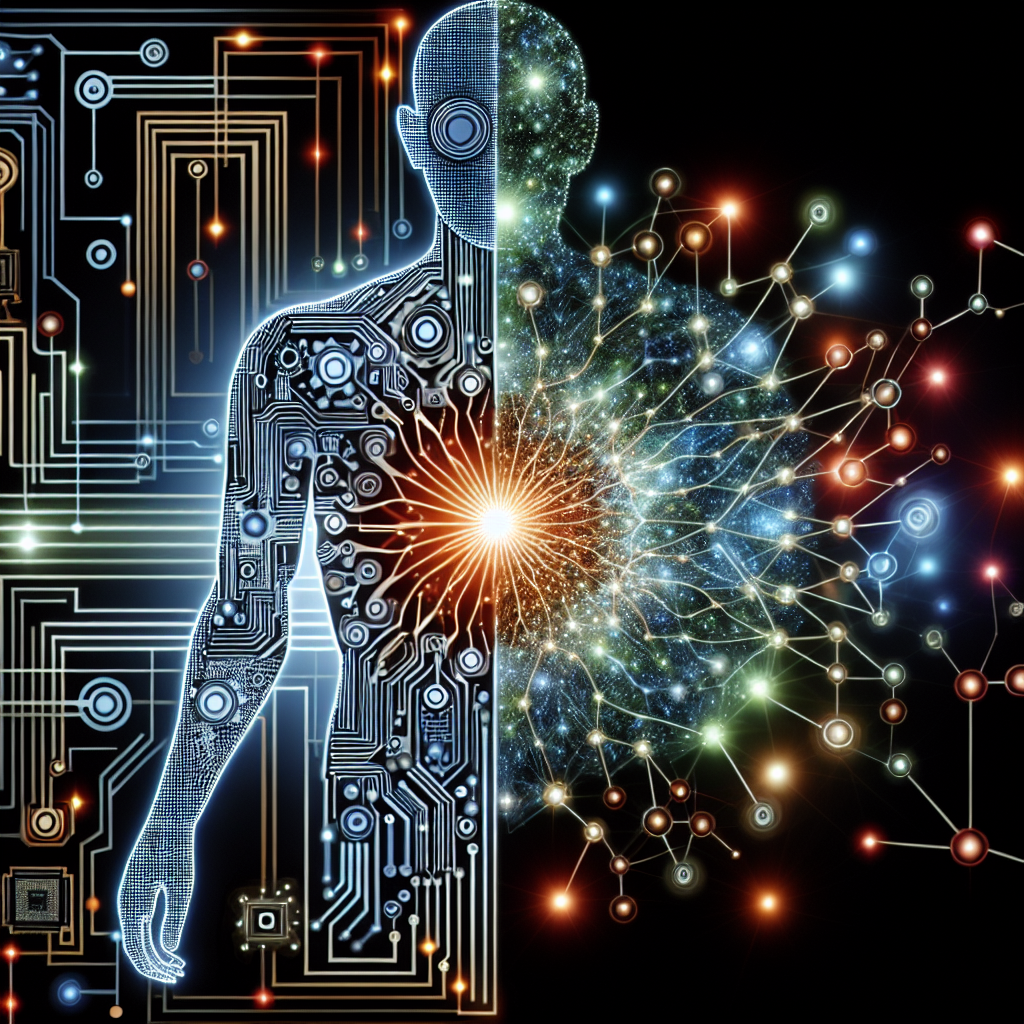Generative AI and quantum computing are two of the most cutting-edge technologies in the field of artificial intelligence and computer science. Both have the potential to revolutionize the way we solve complex problems and create new solutions. When combined, these technologies can unleash even greater power and capabilities that were previously unimaginable. In this article, we will explore the potential of generative AI and quantum computing when used together, and how this powerful combination can shape the future of technology.
Generative AI, also known as generative adversarial networks (GANs), is a type of artificial intelligence that can generate new, realistic data based on existing data. This technology has been used in a wide range of applications, such as image and video generation, text-to-image synthesis, and music composition. GANs work by pitting two neural networks against each other – a generator network that creates new data, and a discriminator network that evaluates the generated data for authenticity. Through this process of competition and collaboration, GANs can produce highly realistic and diverse outputs.
On the other hand, quantum computing is a revolutionary technology that harnesses the principles of quantum mechanics to perform computations at speeds far beyond what classical computers can achieve. Instead of using bits to represent information as in classical computers, quantum computers use quantum bits, or qubits, which can exist in multiple states simultaneously. This allows quantum computers to solve complex problems that would be infeasible for classical computers, such as simulating quantum systems, optimizing large datasets, and breaking encryption codes.
When generative AI and quantum computing are combined, the results can be truly transformative. The immense computational power of quantum computers can dramatically accelerate the training and inference processes of generative AI models, allowing for faster and more efficient generation of new data. Quantum computers can also enable generative AI models to explore larger and more complex datasets, leading to the creation of even more realistic and diverse outputs.
One of the key advantages of combining generative AI and quantum computing is the potential for solving previously intractable problems in fields such as drug discovery, materials science, and climate modeling. For example, generative AI models can be used to generate novel drug candidates based on molecular structures, while quantum computers can simulate the interactions between these molecules at an unprecedented level of accuracy. This combined approach could revolutionize the process of drug discovery by quickly identifying promising candidates and accelerating the development of new treatments.
In addition to scientific research, the combination of generative AI and quantum computing can also have a significant impact on industries such as finance, cybersecurity, and entertainment. For instance, generative AI models can be used to generate realistic financial forecasts and trading strategies, while quantum computers can optimize these strategies in real-time to maximize returns. In cybersecurity, generative AI can be used to detect and prevent cyber attacks, while quantum computing can enhance encryption algorithms to protect sensitive data.
Furthermore, the entertainment industry can benefit from the combination of generative AI and quantum computing through the creation of immersive virtual worlds, lifelike characters, and interactive storytelling experiences. By leveraging the power of generative AI to generate realistic environments and characters, and quantum computing to simulate complex interactions and behaviors, creators can push the boundaries of what is possible in gaming, film, and virtual reality.
Despite the tremendous potential of combining generative AI and quantum computing, there are still many challenges that need to be addressed. One of the main challenges is the complexity of integrating these two technologies, as they operate on fundamentally different principles and require specialized hardware and software. Researchers are actively working on developing new algorithms and architectures that can leverage the strengths of both generative AI and quantum computing, but there is still much work to be done.
Another challenge is the scalability of quantum computing, as current quantum computers are still in the early stages of development and are limited in terms of qubit count and coherence time. As quantum computers become more powerful and reliable, the potential for combining generative AI with quantum computing will only increase. However, it will require significant advancements in quantum hardware and software to fully realize the benefits of this powerful combination.
In conclusion, the combination of generative AI and quantum computing has the potential to revolutionize the way we solve complex problems and create new solutions. By leveraging the computational power of quantum computers and the creativity of generative AI models, researchers and industries can unlock new possibilities in fields ranging from drug discovery to entertainment. While there are still challenges to overcome, the future looks bright for this powerful combination of technologies.
FAQs:
Q: What are some examples of applications that can benefit from the combination of generative AI and quantum computing?
A: Some examples include drug discovery, materials science, financial forecasting, cybersecurity, gaming, and virtual reality.
Q: How can generative AI and quantum computing work together to accelerate scientific research?
A: Generative AI can be used to generate new data and hypotheses, while quantum computing can simulate complex systems and optimize solutions.
Q: What are the main challenges in integrating generative AI and quantum computing?
A: Challenges include the complexity of integrating different technologies, scalability of quantum computing, and the need for specialized hardware and software.
Q: What are some potential future developments in the field of generative AI and quantum computing?
A: Future developments may include advancements in quantum hardware and software, new algorithms for combining generative AI and quantum computing, and applications in fields such as healthcare, finance, and entertainment.

